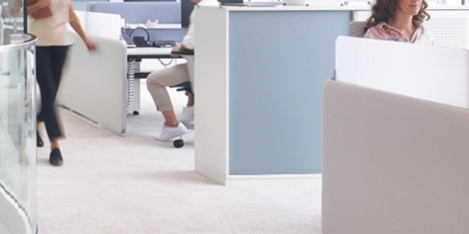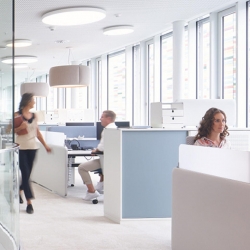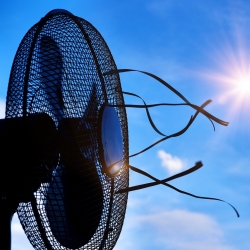To provide the best experiences, we use technologies like cookies to store and/or access device information. Consenting to these technologies will allow us to process data such as browsing behaviour or unique IDs on this site. Not consenting or withdrawing consent, may adversely affect certain features and functions.
The technical storage or access is strictly necessary for the legitimate purpose of enabling the use of a specific service explicitly requested by the subscriber or user, or for the sole purpose of carrying out the transmission of a communication over an electronic communications network.
The technical storage or access is necessary for the legitimate purpose of storing preferences that are not requested by the subscriber or user.
The technical storage or access that is used exclusively for statistical purposes.
The technical storage or access that is used exclusively for anonymous statistical purposes. Without a subpoena, voluntary compliance on the part of your Internet Service Provider, or additional records from a third party, information stored or retrieved for this purpose alone cannot usually be used to identify you.
The technical storage or access is required to create user profiles to send advertising, or to track the user on a website or across several websites for similar marketing purposes.
 New research into workplace discrimination, commissioned by CIPHR, claims just how widespread employment bias is in the UK. On average, one in six people (16 percent) report having suffered ageism, one in ten (10 percent) say they have been the subject of gender-based discrimination (12 percent of women and 7 percent of men), and around one in twelve feel that they have been on the receiving end of prejudicial treatment because of a disability, their race or sexual orientation (9 percent, 9 percent and 8 percent respectively), at some point in their careers. (more…)
New research into workplace discrimination, commissioned by CIPHR, claims just how widespread employment bias is in the UK. On average, one in six people (16 percent) report having suffered ageism, one in ten (10 percent) say they have been the subject of gender-based discrimination (12 percent of women and 7 percent of men), and around one in twelve feel that they have been on the receiving end of prejudicial treatment because of a disability, their race or sexual orientation (9 percent, 9 percent and 8 percent respectively), at some point in their careers. (more…)






 Office occupancy rates have hit their highest levels since March 2020, according to
Office occupancy rates have hit their highest levels since March 2020, according to 
 Completions in central London are expected to hit a three-year high, with 5.5m sq ft scheduled for delivery by the end of this year, according to
Completions in central London are expected to hit a three-year high, with 5.5m sq ft scheduled for delivery by the end of this year, according to 




 As the Government is due to unveil its winter plan for COVID-19 and the ONS confirms employee numbers are back at record levels, according to the latest survey from
As the Government is due to unveil its winter plan for COVID-19 and the ONS confirms employee numbers are back at record levels, according to the latest survey from 
 More than two-thirds (70 percent) of UK businesses have been the victim of a successful network security attack in the last year, and 65 percent have been the victim of at least one ransomware attack in the last 12 months, according to new research from
More than two-thirds (70 percent) of UK businesses have been the victim of a successful network security attack in the last year, and 65 percent have been the victim of at least one ransomware attack in the last 12 months, according to new research from 
 New ways of working will boost UK productivity and increase employment levels in cities outside of London, according to a new report from KPMG. And as businesses in some sectors prepare for employees to spend two to three days a week working from home on a permanent basis, demand for office space could see capacity potentially increase by as much as 40 percent, according to a new KPMG report,
New ways of working will boost UK productivity and increase employment levels in cities outside of London, according to a new report from KPMG. And as businesses in some sectors prepare for employees to spend two to three days a week working from home on a permanent basis, demand for office space could see capacity potentially increase by as much as 40 percent, according to a new KPMG report, 
 While lower occupancy has reduced the carbon footprint of many commercial office buildings amid the pandemic, higher CO2 emissions from hybrid working significantly outstrips these declines, according to data analysed by
While lower occupancy has reduced the carbon footprint of many commercial office buildings amid the pandemic, higher CO2 emissions from hybrid working significantly outstrips these declines, according to data analysed by 
 The company of your work friends can make a long day fly by, with many of us finding long lasting friendships in the workplace. To find out more about how much people love their colleagues,
The company of your work friends can make a long day fly by, with many of us finding long lasting friendships in the workplace. To find out more about how much people love their colleagues, 
 New research from
New research from 
 Disruption, cost, building style, individual goals, responsibility and shared space are cited as the key sustainability challenges for the flexible office sector, according to the
Disruption, cost, building style, individual goals, responsibility and shared space are cited as the key sustainability challenges for the flexible office sector, according to the 







